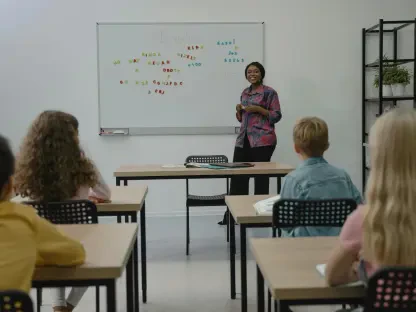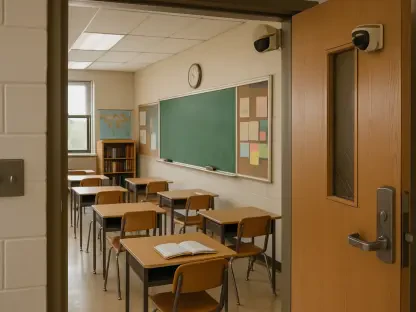In a remarkable step forward for Washington state’s youngest learners, a substantial grant from the Ballmer Group, established by former Microsoft CEO Steve Ballmer, promises to reshape the landscape of early childhood education. Announced on November 12, this initiative targets the expansion of the Early Childhood Education and Assistance Program (ECEAP), a cornerstone for low-income families seeking quality preschool options. With a potential investment surpassing $1 billion over the next decade, the grant aims to create up to 10,000 new preschool slots for children aged 3 and 4, directly addressing a critical shortage in access to early learning opportunities at a time when state resources are under immense pressure.
This financial boost comes as Washington grapples with a projected budget deficit ranging from $12 billion to $16 billion over the next four years, pushing the full implementation of ECEAP—originally slated for an earlier rollout under the Fair Start for Kids Act—to a delayed target of 2030-31. Coupled with uncertainties surrounding federal funding for programs like Head Start, many families have been left in a precarious position. The intervention by the Ballmer Group offers a glimmer of hope, ensuring that thousands of vulnerable children can access the educational foundation they need to thrive, even amidst these fiscal challenges.
The structure of the grant prioritizes meaningful educational exposure, funding school-day slots of 5.5 to 6.5 hours for four or five days a week. Such a framework is designed to maximize the proven benefits of early education, which research consistently links to breaking cycles of poverty and fostering long-term economic mobility. For countless families across the state, this could represent a transformative opportunity, equipping their children with the skills and confidence to succeed in school and beyond, while alleviating some of the financial burdens that often hinder access to quality programs.
The Power of Private Philanthropy
Bridging Budgetary Gaps
Amid a backdrop of severe fiscal constraints at both state and federal levels, the substantial grant from the Ballmer Group emerges as a vital lifeline for Washington’s early education system. Gov. Bob Ferguson, speaking at a community-focused venue, underscored the immeasurable value of this investment for the state’s future, a perspective echoed by numerous policymakers and educators. With the state facing daunting budget shortfalls, this private funding serves as a critical supplement to public resources, ensuring that the expansion of preschool access doesn’t stall. Importantly, the grant’s conditions stipulate that the state must maintain its current funding levels for ECEAP, preventing a scenario where private dollars simply replace public commitment, and instead fostering a true partnership that enhances overall capacity.
This financial support couldn’t come at a more critical juncture, as federal uncertainties—such as potential disruptions to Head Start funding during government shutdowns—compound the state’s challenges. The infusion of private philanthropy offers a buffer, allowing Washington to continue prioritizing early learning despite economic headwinds. By stepping in to fund thousands of new preschool slots, the initiative helps safeguard the educational prospects of children from low-income households, who are often the most affected by budget cuts. This strategic intervention highlights how targeted private investments can stabilize public programs, providing a safety net for families who might otherwise be left without essential services during turbulent times.
Fostering Collaborative Solutions
The partnership between the Ballmer Group, state government, and local community organizations has been hailed as an exemplary model for addressing pressing public needs during budget crises. State Sen. Claire Wilson, a longtime advocate for early education, emphasized the importance of such collaboration in ensuring that resources reach the children and families who need them most. Legislative efforts are already in motion to support this initiative, with bills being drafted to establish a dedicated account for the grant funds, streamlining the process of allocation and implementation. This cooperative approach not only amplifies the impact of the funding but also sets a precedent for how public-private partnerships can tackle systemic challenges in education and beyond.
Beyond legislative action, the collaboration extends to community-level engagement, where local leaders and educators play a pivotal role in translating funding into tangible outcomes. This synergy ensures that the expansion of ECEAP aligns with the specific needs of diverse populations across Washington, from urban centers to rural areas. The commitment to working together reflects a shared understanding that early childhood education is a foundational investment, one that requires input and effort from all sectors to succeed. As this model of collaboration takes shape, it offers a blueprint for other states facing similar fiscal and educational challenges, demonstrating the power of unified action in creating lasting change for future generations.
Equity and Access for All
Prioritizing Marginalized Communities
At the heart of the ECEAP expansion lies a steadfast commitment to serving families who are “furthest from opportunity,” as articulated by Tara Senn, secretary of the Department of Children, Youth, and Families. This grant is poised to increase annual enrollment from the current 14,500 children to nearly 25,000 at full capacity, a significant leap that prioritizes low-income households and marginalized groups often excluded from quality early learning programs. By focusing on equity, the initiative seeks to close persistent opportunity gaps that disproportionately affect vulnerable populations, ensuring that every child, regardless of background, has a fair shot at a strong educational start. This targeted approach aligns with broader state goals to make early education both accessible and affordable for those who need it most.
The emphasis on equity also manifests in the program’s comprehensive support systems, which go beyond classroom instruction to include family resources, nutrition, and health screenings. These holistic services address the multifaceted barriers that low-income families face, creating a supportive environment where children can thrive. For many, access to such programs means more than just preschool—it’s a pathway to stability and integration into the broader community. As ECEAP grows with this funding, the ripple effects are expected to extend far beyond individual families, contributing to greater societal equity by leveling the playing field for children who might otherwise be left behind in their formative years.
Empowering Diverse Families
Immigrant families, who often navigate unique challenges in a new country, stand to gain immensely from the expanded access to ECEAP. The personal story of Buted Dashdemberel, a Mongolian American mother from Seattle, illustrates the profound impact of the program. For her, ECEAP provided not only educational opportunities for her children but also vital resources and community connections that eased the transition into American life. This kind of support is invaluable for parents grappling with cultural and linguistic barriers, offering a sense of belonging while ensuring their children receive the early learning needed to succeed in school. The grant’s focus on such families underscores its role in fostering inclusion and opportunity across diverse communities.
Further enhancing this impact, ECEAP incorporates features like dual-language classrooms—offering instruction in languages such as Chinese and English—and tailored support for children with limited English proficiency. These elements create an inclusive educational environment where cultural diversity is celebrated and leveraged as a strength. For families like Dashdemberel’s, this approach means their children can maintain ties to their heritage while building the skills necessary for academic and social success in a new context. As the program scales up with the Ballmer Group’s support, it promises to reach even more diverse households, reinforcing Washington’s commitment to ensuring that early education serves as a bridge to opportunity for all, regardless of origin or circumstance.
Looking Ahead: Challenges and Opportunities
Navigating Implementation Hurdles
While the prospect of adding 10,000 new preschool slots through the Ballmer Group’s grant is inspiring, the road to full implementation presents significant logistical challenges that must be carefully managed. Andi Smith, executive director for Washington State at the Ballmer Group, has acknowledged that scaling up will require time to address critical needs such as workforce development and facility expansion. Recruiting and training qualified educators, alongside securing appropriate spaces for new classrooms, are complex tasks that cannot be rushed without risking the quality of education provided. A phased approach to the rollout, with a planned evaluation after five years, introduces a layer of flexibility, allowing adjustments based on real-world outcomes and ensuring that the program’s growth remains sustainable and effective.
Compounding these challenges is the need to maintain the high standards that define ECEAP, even as enrollment surges. State and local stakeholders are keenly aware that rapid expansion must not come at the expense of the personalized, high-quality instruction and support that make the program so impactful. This means balancing urgency with meticulous planning, ensuring that each new slot represents a genuine opportunity for learning rather than a mere increase in numbers. As Washington embarks on this ambitious journey, the focus on strategic implementation will be crucial in translating the grant’s potential into meaningful results for children and families across the state, setting a standard for how large-scale educational initiatives can be executed with care and precision.
Building a Sustainable Future
Reflecting on the strides made with the Ballmer Group’s decade-long commitment, it’s clear that this initiative marks a turning point for early childhood education in Washington. The partnership forged between private philanthropy and public entities demonstrates a powerful synergy, addressing immediate needs while laying the groundwork for long-term progress. By prioritizing equity and access, the expansion of ECEAP reaches thousands of children who might otherwise have been overlooked, offering them a stronger start in life. The stories of families who benefited—spanning diverse backgrounds and circumstances—underscore the transformative power of early learning when supported by robust, collaborative efforts.
Looking to the future, the focus shifts to sustaining this momentum beyond the initial decade of funding. Stakeholders are beginning to explore ways to secure ongoing resources, whether through continued private investments or increased public allocations, to ensure that the gains achieved are not temporary. Additionally, the evaluation planned midway through the grant period offers a chance to refine strategies, addressing any gaps in implementation or emerging needs. As Washington moves forward, the emphasis on adaptability and community engagement promises to guide the next steps, ensuring that early education remains a priority and a pathway to opportunity for generations to come.









